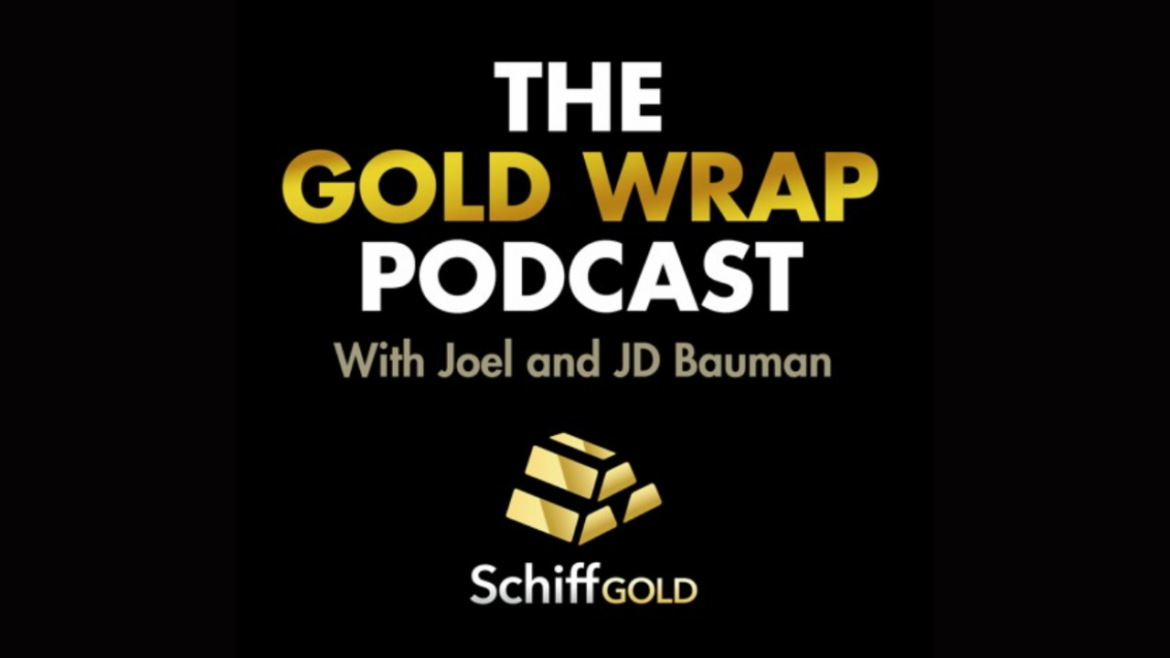Precious metals are apparently waking up. And here is where you can find the best deals.
Site:
Precious metals news
The surging price of gold, recently hitting a record high of $2,400 per ounce, has sparked a modern gold rush. People are discovering valuable assets in their homes, from old jewelry to gold coins, with just four one-ounce coins now valued at nearly $10,000. At places like Main Street Coin, numismatist Clay Wallen finds himself busier than ever, as customers like Chris Reynolds and Jim Payne cash in items such as old gold bracelets, reaping benefits like $200 for just a few pieces.
Oil prices fell to below $83 a barrel as progress towards a ceasefire between Israel and Hamas lessened the geopolitical risk associated with crude oil. West Texas Intermediate crude dropped 1.6% after reports of Israel's willingness to negotiate a truce, potentially starting with the release of 33 hostages. The momentum for peace is supported by U.S. Secretary of State Antony Blinken's efforts to broker a ceasefire during his regional visit, with Israel pausing any further military actions in Rafah ahead of discussions with American officials.
The US rate options market, sensitive to inflation trends, is cautiously pricing in potential Federal Reserve interest rate hikes for this year and next. Options on Secured Overnight Financing Rate (SOFR) futures, a key indicator used by bond investors to predict Fed policy, suggest a modest likelihood of rate increases. Despite current SOFR rates at 5.31%, market consensus is mixed, with some anticipating a possible single rate cut rather than multiple hikes, reflecting a strategy of maintaining higher rates longer amidst persistent inflation and a strong labor market.
Apr 29, 2024 - 10:32:42 EDT
US regulators have closed Republic Bank, marking 2024's first bank failure. The FDIC is safeguarding $10 billion, comprising $6 billion in assets and $4 billion in customer deposits, transferring them to Fulton Bank. Republic Bank’s 32 branches across New Jersey, Pennsylvania, and New York will resume operations under Fulton Bank this weekend or Monday, depending on regular branch hours. Customers can access funds through checks, ATMs, or debit cards. This transition follows significant bank failures in the previous year and comes amid ongoing concerns about the banking sector's stability due to its connections with the volatile commercial real estate market and US Treasuries.
 Investor Focus on Fed's Rate Strategy Boosts Gold During Rising Inflation
Investor Focus on Fed's Rate Strategy Boosts Gold During Rising InflationApr 29, 2024 - 09:52:33 EDT
Gold prices rose modestly, rebounding from a 2% drop last week, in anticipation of the upcoming Federal Reserve meeting expected to maintain a policy of high interest rates for an extended period. Despite the broader anticipation of rate cuts this year diminishing due to recent inflation data, gold has gained over 13% this year, reaching record highs earlier this month. The upcoming U.S. jobs report will also play a crucial role in shaping market expectations.
Despite a period of dovish signals, the Federal Reserve is expected to revert to a hawkish stance due to rising inflation figures. This shift, anticipated by economists, comes after Federal Reserve Chair Jerome Powell previously indicated at a 2022 Jackson Hole meeting that tough measures might be necessary to manage inflation. Experts like Ellen Meade and Marc Giannoni suggest that recent easing in financial conditions will likely prompt a more stringent approach to monetary policy.
Beneath the sweet surface of our favorite treats lies a bitter reality: inflation has sent cocoa prices soaring to unprecedented heights. Once deemed the food of the gods and now a daily indulgence for millions, chocolate is facing a dramatic upheaval as wholesale cocoa prices have rocketed past $11,000 per ton. Our guest commentator explains why this startling surge is a result of meddling from the Fed, leaving chocolate lovers and manufacturers in a squeeze.(For our favorite gold chocolate bar, see our Gold Valcambi Combibar)
 HOUSTON... "WE HAVE A PROBLEM": U.S. Wind Power Generation Declines First Time In 20 Years
HOUSTON... "WE HAVE A PROBLEM": U.S. Wind Power Generation Declines First Time In 20 YearsApril 28, 2024
It looks like trouble might be brewing in the U.S. Wind Power Industry. For the first time in 20 years, U.S. wind power generation declined in 2023, even though more than 6 Gigawatts of new capacity was added. SUBSCRIBER UPDATE: I will be heading back to the home office on...
The Comex report last month showed a lot of strength in gold which directly preceded a massive up move for the price of gold. The data is looking similar in silver this month!
The close movement between gold and the dollar, typically seen as defensive assets, is currently signaling a potential deep correction in the S&P 500. Historically, when these two assets converge in behavior, it often precedes significant downturns in the stock market, suggesting that investors should brace for possible declines.
Whenever an election year rolls around, domestic manufacturing becomes a more central theme of discussion. Candidates from both sides, who seem to disagree on almost everything else, never waver in their commitment to auto manufacturers in Detroit and the steel industry. Republicans and Democrats never forget to remind the American public that they will try to keep these specific jobs on American soil. These very tangible and traditional markers of American industry seem to hold an outsize role in the American mind, especially considering that the steel industry, one of the most frequently mentioned industries, only employs 143,000 citizens.
 Moderate U.S. Inflation Rise Suggests Fed Could Keep Rates Steady Until Fall
Moderate U.S. Inflation Rise Suggests Fed Could Keep Rates Steady Until FallApr 26, 2024 - 11:31:00 EDT
U.S. inflation edged up in March, meeting expectations and reinforcing the view that the Federal Reserve will likely hold off on interest rate cuts until September. The personal consumption expenditures (PCE) price index rose by 0.3% last month, the same as in February, according to the Commerce Department's Bureau of Economic Analysis. This steady increase, in line with market forecasts, suggests that the central bank will maintain its current rate policy for the time being.
The wizards at the Fed and US Treasury have been forced to acknowledge that their “transitory,” inflation is, in fact, quite “sticky.” And with the inflation elephant now acknowledged by the circus of high finance, Treasury yields keep inching up, recently reaching 4.7% — the highest since November. The Fed is stuck: It needs to raise interest rates to tame inflation and make Treasuries more attractive. But the Fed can’t afford higher rates, with an already-untenable cost to service the existing debt and loan-dependent industries teetering on the brink.
Not all gold is created equal. Here's what you need to know about gold and silver jewelry.
 Traders Increase Bets on September Fed Rate Cut Following Inflation Report
Traders Increase Bets on September Fed Rate Cut Following Inflation ReportApr 26, 2024 - 09:43:18 EDT
Traders are increasingly betting on the U.S. Federal Reserve initiating its first interest rate cut of the year in September, following a recent government inflation report. This report, which indicated that the U.S. personal consumption expenditures (PCE) price index rose by 0.3% from February to March, has influenced interest rate futures prices. These now suggest a 65% probability of a rate cut during the Fed's mid-September meeting, a noticeable increase from the previous likelihood of less than 60%.
Inflation persisted in March, as revealed by the Federal Reserve's closely monitored personal consumption expenditures (PCE) price index. Excluding food and energy, the core PCE index rose by 2.8% year-over-year, surpassing the anticipated 2.7%, according to the Commerce Department. Including these volatile categories, the overall PCE index also exceeded expectations, climbing 2.7% compared to a forecasted 2.6%. Despite these figures indicating sustained inflationary pressure, market response was muted, with Treasury yields dipping slightly and Wall Street poised for a positive open.
 Gold Set for Weekly Dip as U.S. Inflation Fears Weigh on Market Sentiment
Gold Set for Weekly Dip as U.S. Inflation Fears Weigh on Market SentimentApr 26, 2024 - 09:27:36 EDT
Gold is on track for a weekly loss as U.S. inflation worries dampen demand, despite a modest increase ahead of critical inflation data due this Friday. The anticipated personal consumption expenditures index is expected to confirm that March continued to see high price pressures. Heightened inflation has raised doubts about the Federal Reserve's ability to lower borrowing costs, which has boosted Treasury yields—a negative for gold, which yields no interest. Compounding concerns, a recent report showing U.S. GDP growth falling short of expectations has reignited fears of stagflation, characterized by slow growth and high inflation.
JD and Joel unpack Peter's latest podcast and the economy's current path toward stagflation. We look at this week's price action, macroeconomic data, and a quote from Jordan Peterson.
 INDIAN SILVER IMPORTS SURGE Q1 2024: Account For 75% Of Total U.S. Silver Imports In 2023
INDIAN SILVER IMPORTS SURGE Q1 2024: Account For 75% Of Total U.S. Silver Imports In 2023April 26, 2024
Indian silver imports surged so high during the first quarter of the year that it represented 75% of total U.S. silver imports in 2023. That's a lot of silver, considering the United States is one of the largest importers of metal...
 Economic Slowdown and Rising Inflation Cast Doubt on Soft-Landing Prospects
Economic Slowdown and Rising Inflation Cast Doubt on Soft-Landing ProspectsApr 25, 2024 - 11:53:23 EDT
The U.S. economy experienced its slowest growth in nearly two years last quarter, accompanied by a notable increase in inflation, which dampened hopes for a soft landing. The Bureau of Economic Analysis reported that the Gross Domestic Product (GDP) grew at an annualized rate of 1.6%, falling below all economists' forecasts. The primary driver of economic growth, personal spending, increased at a modest 2.5% rate, which was less than expected. Additionally, a widening trade deficit contributed to the slowdown, marking the largest subtraction from growth since 2022. Inflation also showed signs of acceleration, with a key indicator rising at a 3.7% annualized rate. This was the first quarterly increase in a year, indicating that price pressures are resurfacing.










